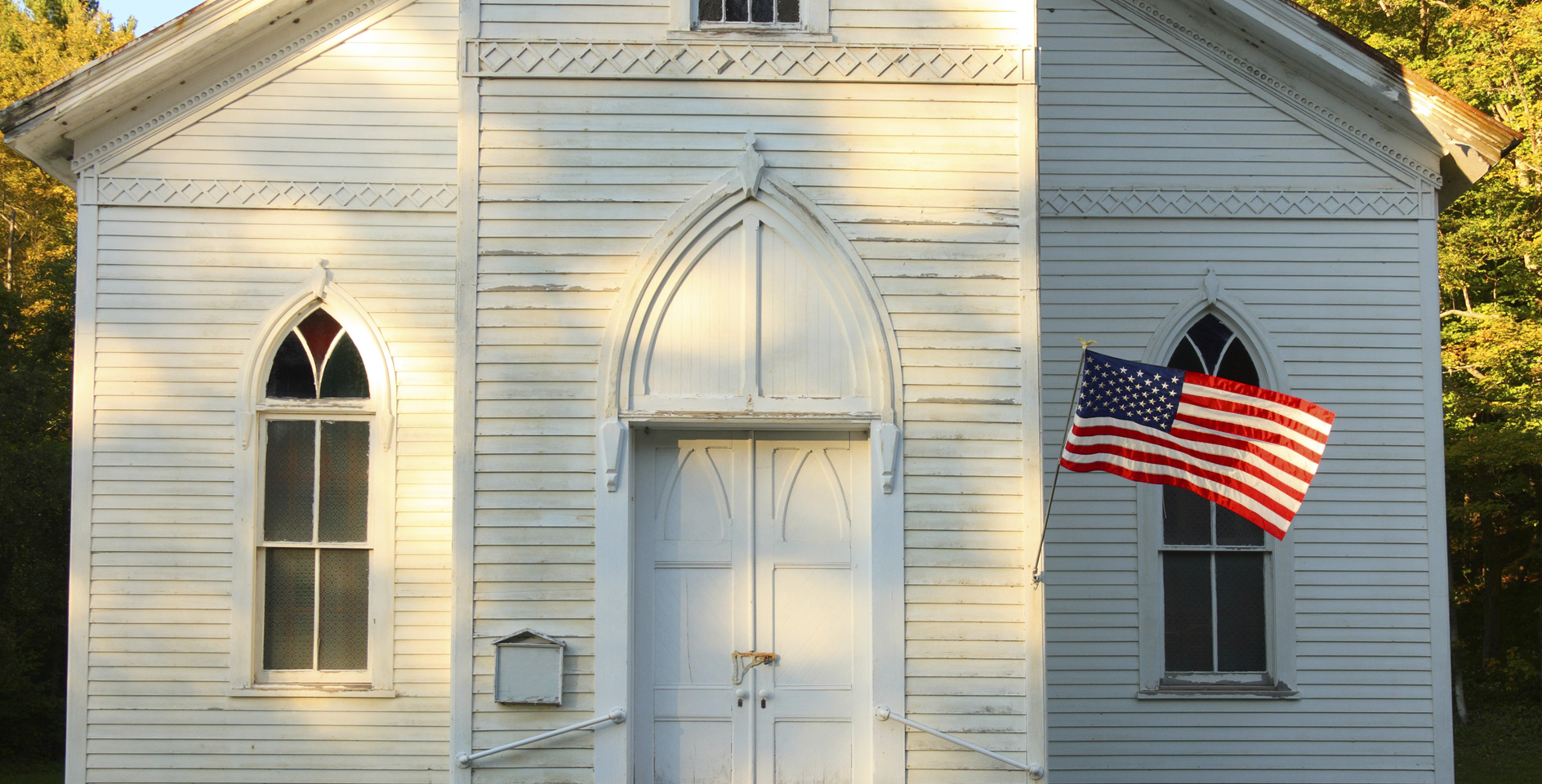I was raised in a patriotic family. My Dad is a retired Marine. My father-in-law is a decorated Vietnam Vet. My brother flew B-52's in the War on Terror. When the flag goes up or passes by, I stop what I'm doing and put my hand over my heart. I know all the words to the “Star Spangled Banner,” and I sing it proudly when it’s played at sporting events. My son is a cadet at West Point. All that to say, I'm patriotic, proud to be an American and pro-military.
I grew up going to patriotic churches in the South. We always made a big deal out the Sunday before the 4th of July. There were American flags in the auditorium, recognition of veterans, patriotic music and, occasionally, pledges in these special worship services. Most of the people in the churches I grew up in were white, and nearly all (if not all) were American citizens. Many had served in the military. These experiences seemed normal, natural and even spiritual.
But now these kinds of worship services and patriotic elements have been called into question by many on social media and in other platforms. Should American Christians bring our patriotism into our churches and worship services? Does “Old Glory” in the auditorium necessarily detract from the King of Glory? And what about the increasingly multicultural makeup of our churches and our society? Could brothers & sisters find our patriotic displays off-putting, or even offensive? Should we be concerned about confusing our people by focusing on American patriotism when God beckons us to long for a better country?
I serve as a pastor in a multicultural church in a multicultural city where many attendees are not American citizens. While I still want to incorporate patriotic elements in our worship services from time to time, I want to be careful not to explicitly or implicitly conflate American patriotism with the gospel of Jesus. Over the years, I have developed some thoughts about how to do this in an appropriate way. Perhaps you will find the following to be helpful:
- We should pay attention our cultural context. I pastor a church in the United States of America. So occasionally, we acknowledge and celebrate (or lament and mourn) national milestones, triumphs and tragedies. As a pastor, I want to take advantage of the natural opportunities that these holidays and cultural events provide to teach people about the intersection of the gospel, patriotism and citizenship.
- We should give honor where honor is due. In the U.S., we have religious freedom that has been purchased and protected by the blood of patriots. It is right to honor that resolve and sacrifice, even in church. That's why, in my church, we sometimes recognize veterans, gold-star moms and others who have served our nation with distinction. But this principle is not uniquely American. Christians in every country should give honor to the things about their nations that are honorable.
- We should acknowledge the role that Christians played in the founding of our nation. Many of the founding fathers were professing believers in Jesus. Some were not. All of them were flawed sinners. We should celebrate the influence of those believers, much like we celebrate the place of believers in the Civil Rights Movement or the movement to abolish slavery.
- We should point out that the most important American idea is really a Bible idea. The assertion that all men are created equal and are endowed with unalienable rights comes straight from the Christian Scriptures. Even though our nation fails to live up to this ideal in many ways, it is nonetheless an aspirational belief that is central to the Christian worldview.
- We should remind American believers that Jesus isn't an American and that his eternal government will be centered in a new Jerusalem (not a new Washington, D.C.). In many churches, there is often an unspoken cultural undercurrent suggesting that America has a special place in God's plan—almost like America is a "new Israel." That belief cannot be biblically supported and caters to an unhelpful arrogance toward believers in other nations. Our preaching on patriotism should involve a healthy dose of biblical eschatology that could be appreciated and embraced by Christians from every country.
- We should remember that the United States of America is only a temporary institution. The Bible teaches that all kings and kingdoms will pass away. So, whether Americans turn back to God or not, our government (like all current governments) is destined to give way to a better government with a better King.
- We should look forward to a better city and a better country. Abraham and the children of Israel were given the promised land. But they still longed for something better. The gospel promises believers a world where sorrow, pain and death have been eradicated and where our tears have been wiped away. That is the country we should be preaching toward and longing for with all of our hearts.
- We should teach American Christians to desire a free nation, not a Christian nation. We should be careful not to assert or affirm that America is uniquely for Christians. It's not. Believers should want to keep America free so that religious beliefs and expressions can compete in the open marketplace of ideas. We want to allow people of all faiths to worship, demonstrate, articulate and live out the implications of their religious beliefs. Christian pastors should teach our people to be confident that the gospel and the Christian worldview is powerful and persuasive.
Some preachers will choose to completely do away with any mention of patriotism in their services or sermons, eschewing these elements as crass revivalism. But, in my view, it would be a shame to ignore these easy cultural opportunities to connect the gospel of Christ to the lives of everyday Americans. Finding the right balance isn't easy, but gospel preachers have a responsibility to engage cultural issues, offer biblical encouragement and critique to government leaders, and to teach our people about a biblical stewardship of our citizenship.
But, most importantly, we all should preach about the day when government of the people, by the people and for the people will permanently yield to government of Jesus, by Jesus for Jesus. Our people need to hear that our true citizenship is in heaven, and our true King is Christ.







